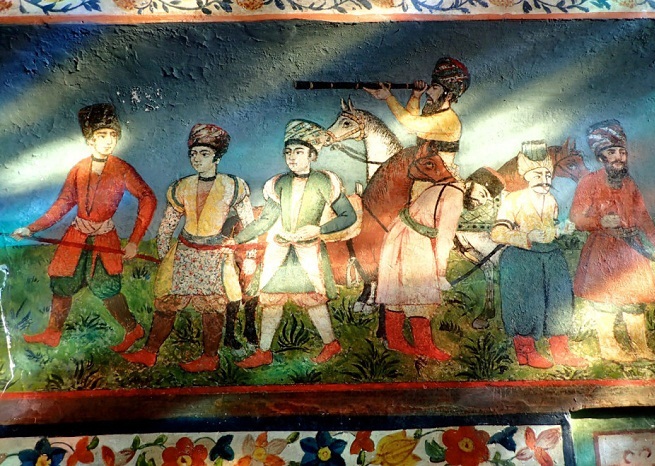“Okay.”
“Too much asphalt. Take care of it Rufat.”
“Okay.”
We are walking, the forever obliging Rufat Gojayev and I, across Azerbaijan.
Azerbaijan: a small but affluent petroleum state hemmed between empires, civilizations, continents. Between Europe and Asia. Between Russia and Iran. It is the size of Indiana. Secular Islamic (with pockets of Jews and Orthodox Georgians). A country of high, snowcapped peaks. Of oak forests. Of semiarid grasslands. Of mud volcanoes and pomegranates that induce bliss. And a booming capital city, Baku, that aspires to be a new Dubai on the Caspian Sea.
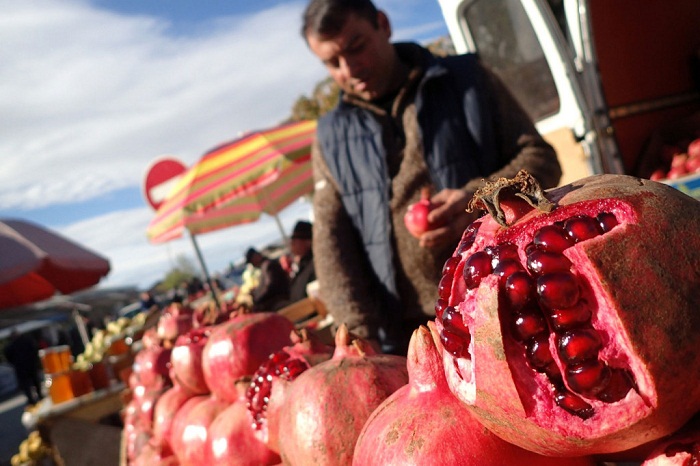
At the border: a new world.
The rustic, handmade landscape of Georgia, with its open farmlands and chilly stone houses, gives way to a more globalized Azerbaijan: more fences and new buildings tropically heated with abundant hydrocarbon supplies, villages blazing with street lights, and tiny shops jammed with international packaged snack foods. In poorer Georgia, the hinterlands are unpaved and organic: a soft, pastoral system of dirt and mud roads. In Azerbaijan, even the wispiest back lanes are busy, zipping with cars, ribboned with asphalt. This is a novelty. A shock. It is also hard on the knees and feet.
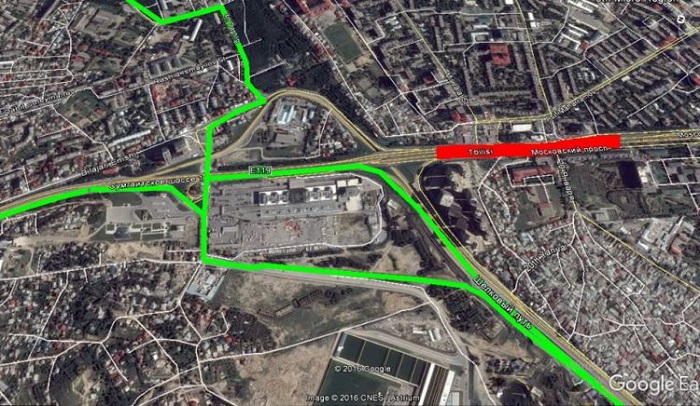
The good news: Gojayev, my Azeri guide, is a world-class alpinist. During one year alone, he summited three mountains towering above 23,000-feet: Lenin Peak in Kyrgyzstan, and Kozjneva and Communism peaks in Tajikistan. For this he was named “Sportsman of the Year” in Azerbaijan in 2012. He is tough. He will find us foot-friendly paths to walk on.
The bad news: It is a disaster to trek across any country with a Sportsman of the Year. It automatically cancels one’s lifetime warrantee on knee cartilage. Gojayev, 37, leaps across rivers like a gazelle. He sets a relentless pace. “I’m sorry,” I wheeze, out of breath, as he applies a Band-Aid to a blister. (I get no blisters; I am not sorry.) “No problem,” Gojayev replies happily. He tugs on his second-hand boots. He gets up. And with alarming indifference, he scorches through another 25 miles.

Gojayev never says no. He says: “Okay.” He orders the rains to stop. He conjures up pillow-soft dirt lanes. He makes roadside teashops magically appear on demand. He is invincible. Moreover, he is a gusher of knowledge about the flora and fauna of Azerbaijan, about its history, about its old khanates that ruled over the local exit ramps along the medieval Silk Road. Best of all, Gojayev is a master at handling dogs.
Dogs: a major consideration on any walk across the world.

Think about it: Dogs are the jealous kings of their small, four-legged fiefdoms. They bark. They snap. They chase if you come near. Yet they do not mark their tiny, belligerent empires! Their dog borders are not visible! There will be thousands, maybe millions, of such dangerous canine territories to navigate in the years of walking ahead. My dog strategy: Ignore them—until they plunge close enough to bite; then pretend to pick up a stone.
For Gojayev, these crude tactics are laughable.
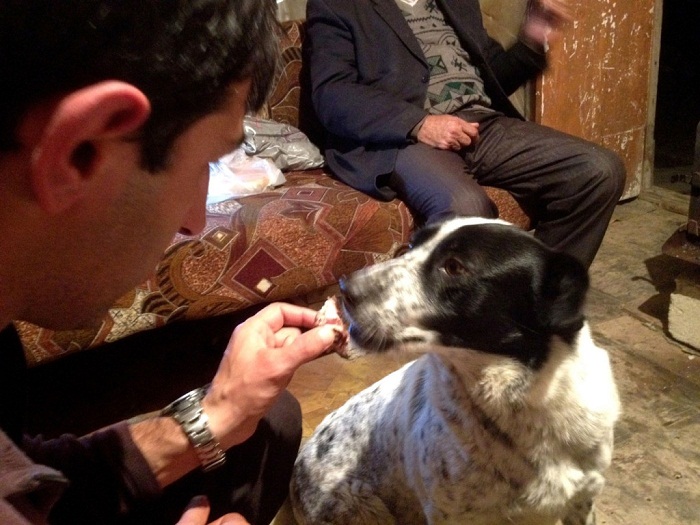
“What is that?” I asked him when we first met at the border. “This,” he replied, extending a collapsible aluminum walking stick, “is for dogs.”
But Gojayev’s weapon is purely defensive. Because he is, foremost, a pacifist: a diplomat. He is a charmer of dogs. He calls out to dogs—first a low, under-bite whistle, followed by loud air kisses—constantly. I hear him schmoozing dogs all day. When this doesn’t work, he pulls out a bag of old bread: He throws chunks of food to the dogs. Instantly: tails wag, a truce. Gojayev talks with many stray cats as well: a soothing call that goes, “Ssssk! Ssssk! Ssssk!” Like many shy, reserved people, he holds a special connection for other species.
This is how we shuffle to the Caspian Sea, more than 280 miles way.
One man complains incessantly about pavement. Another conducts long conversations with domestic animals. We are saddled with heavy rucksacks. In our fists we carry plastic shopping bags severely stretched, as if by cannonballs, with Gojayev’s mother’s cookies. She sends them, via public minibus, every few days along the route. Parcels of fruit and nut biscuits. These boxes weigh 25 pounds.
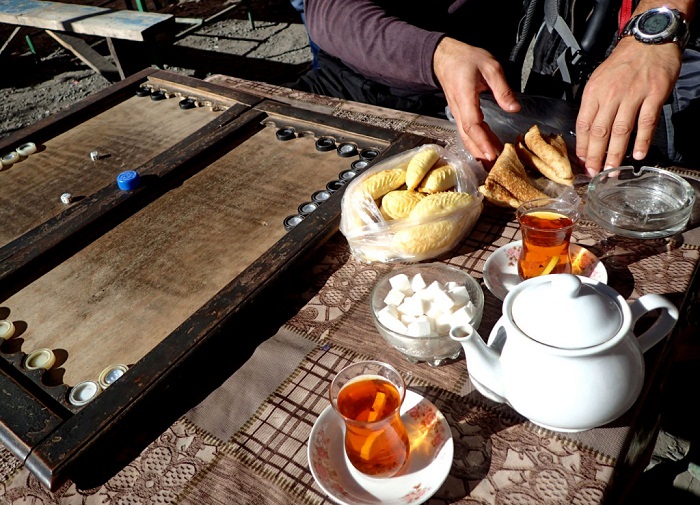
“We’re almost out of cookies,” I say. “Call your mom, Rufat.”
And Gojayev replies: “Okay.”
Paul Salopek is an American journalist, writer of Croatian descent, a two-time Pulitzer Prize winner and National Geographic Fellow.








